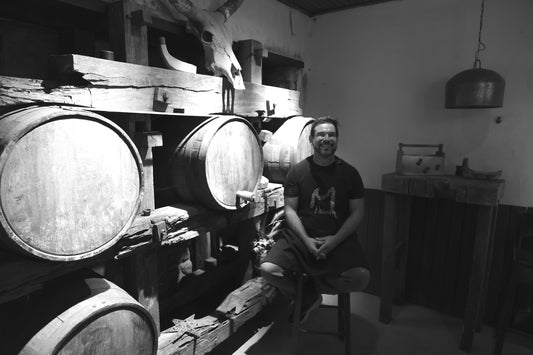
Why You Should Switch to Organic Coffee
1.1. Definition of organic coffee
1.2. Brief overview of the coffee industry's impact on the environment
2. Benefits of Organic Coffee
2.1. Health Benefits
2.2. Environmental Benefits
2.3. Social and Economic Benefits
3. Comparing Organic vs. Non-Organic Coffee
3.1. Agricultural Practices
3.2. Chemical Usage
3.3. Taste and Quality Differences
4. Why Making the Switch Makes Sense
4.1. Long-term Health Implications
4.2. Supporting Sustainable Practices
4.3. Economic Impact on Farmers
5. How to Identify and Choose Organic Coffee
5.1. Certification Marks to Look For
5.2. Top Brands of Organic Coffee
5.3. Tips on Reading Labels
6. Conclusion
6.1. Summary of Benefits
6.2. Encouragement to make the switch
7. FAQs
---
Article Content
Why You Should Switch to Organic Coffee
1. Introduction
Organic coffee is not just a trend; it is an eco-friendly approach to coffee consumption that supports both personal health and environmental sustainability. The global coffee industry significantly impacts agricultural practices, deforestation, and pesticide use. Organic coffee presents a solution to these problems by adhering to practices that foster soil health and reduce harmful chemical inputs.
2. Benefits of Organic Coffee
*2.1 Health Benefits*
Organic coffee is grown without the use of synthetic pesticides and fertilizers, which means it contains fewer chemicals. This can translate to better health benefits including reduced risks of chemical ingestion, which has been linked to several health issues including cancer and hormone disruption.
*2.2 Environmental Benefits*
The environmental footprint of organic coffee is markedly smaller. Organic farms focus on sustainability, often utilizing polyculture farming practices which help maintain ecological balance and reduce the need for chemical inputs.
*2.3 Social and Economic Benefits*
Choosing organic coffee can also support fair trade practices. Many organic farms provide better living conditions and fair wages to their workers, contributing to more sustainable economic growth in coffee-producing areas.
3. Comparing Organic vs. Non-Organic Coffee
*3.1 Agricultural Practices*
Organic coffee farming emphasizes the use of natural substances and physical, mechanical, or biologically based farming methods as opposed to synthetic chemicals.
*3.2 Chemical Usage*
Non-organic coffee plants are often treated with synthetic fertilizers and pesticides, while organic coffee is produced with none of these hazardous substances.
*3.3 Taste and Quality Differences*
Many coffee connoisseurs believe that organic coffee offers a purer, more natural flavor profile compared to non-organic varieties, often with a smoother finish and more pronounced taste notes.
4. Why Making the Switch Makes Sense
*4.1 Long-term Health Implications*
Investing in organic coffee can contribute to long-term health benefits, reducing exposure to potentially harmful chemicals found in traditional coffee farming.
*4.2 Supporting Sustainable Practices*
Switching to organic coffee promotes agricultural practices that are better for the environment, such as reducing water pollution and soil degradation, and increasing biodiversity.
*4.3 Economic Impact on Farmers*
Supporting organic coffee helps ensure fair wages and better living conditions for farmers and their families.
5. How to Identify and Choose Organic Coffee
*5.1 Certification Marks to Look For*
Organic certification marks vary by region but often include USDA Organic, Fair Trade Certified, or Rainforest Alliance Certified.
*5.2 Top Brands of Organic Coffee*
Some reputable brands include Equal Exchange, Café Don Pablo, and Death Wish Coffee.
*5.3 Tips on Reading Labels*
Understanding labels is crucial; look for certification marks, check the origin, and be aware of misleading terms like "natural" which do not equate to organic.
6. Conclusion
Making the switch to organic coffee is not just a personal choice but a global responsibility. It enhances health, protects the environment, and supports equitable economic practices. We encourage coffee lovers to explore and transition to organic options to contribute to a more sustainable future.
7. FAQs
1. What makes coffee organic?
Organic coffee is grown using methods and materials that have a low impact on the environment, without synthetic pesticides or fertilizers.
2. Is organic coffee more expensive than regular coffee?
Yes, often due to the more sustainable farming practices and rigorous certification processes involved.
3. Can organic coffee taste as good as regular coffee?
Yes, many argue it tastes better due to the lack of chemical residues and richer soil health.
4. Where can I buy organic coffee?
Organic coffee is available in most grocery stores, specialty coffee shops, and online.
5. Is organic coffee better for farmers?
Generally, yes, because it often involves fairer trade practices and better working conditions for farmers.


